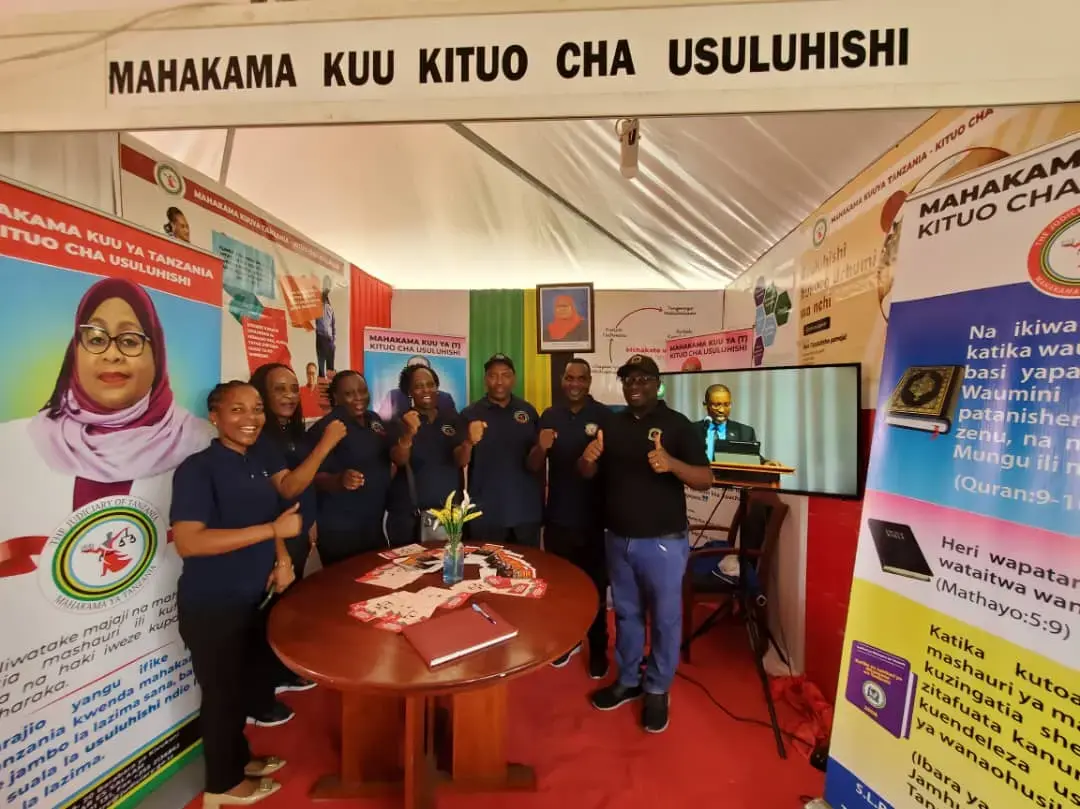Enhancing Justice in Tanzania
We address a critical gap in Tanzania's justice system, the exclusion of underserved communities from accessing justice, by making mediation both accessible and inclusive.
Our uniqueness lies in creating inclusive mediation materials and empowering community leaders as Peacemakers who drive change in the justice system. Our systemic approach leverages existing resources from the Judiciary and the Ministry of Constitutional and Legal Affairs, including information, human capital, and outreach.
The impact is assessed through a combination of qualitative and quantitative indicators,
Key metrics:
- Number of disputes resolved amicably
- Number of trained peacemakers
- Beneficiary satisfaction
- data on cost and time savings
- documentation of success stories
1 Million+
Disputes are peacefully resolved through mediation by the peace-maker community
Qualitative Impact:
- Mediation has led to a cultural shift in how conflicts are perceived and addressed within communities.
- The resolution of disputes through mediation tackles root causes, reducing recurring conflicts.
- Mediation fosters a more harmonious and supportive community, impacting overall well-being.
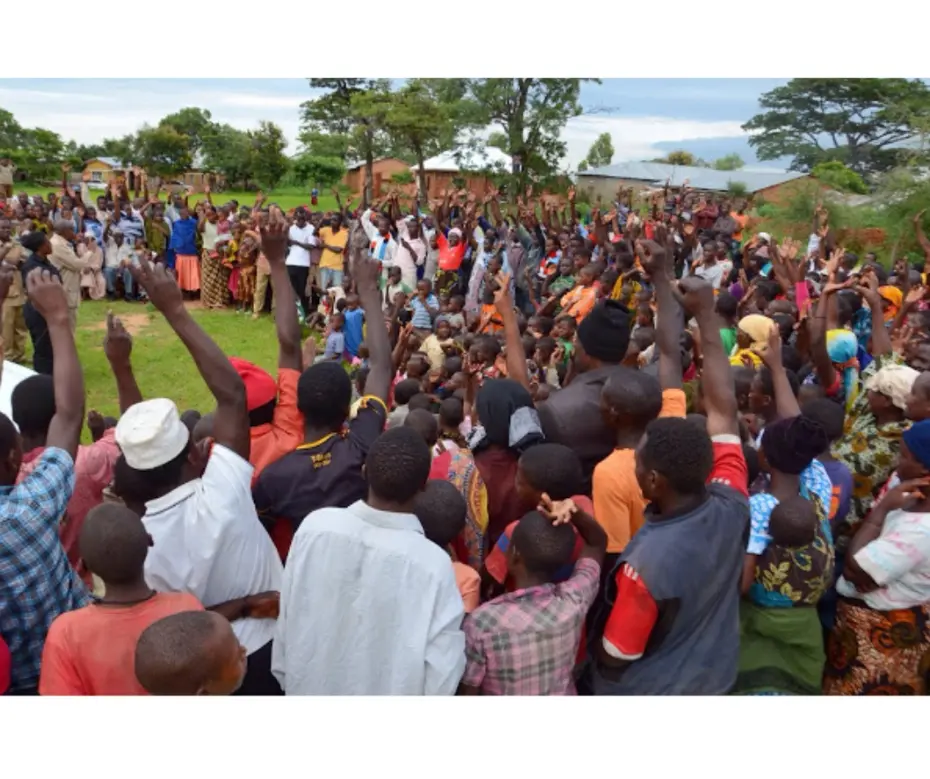
In the image: ESS partnered with local village leaders and government officials to conduct a legal clinic outreach in Kamachumu, Muleba District, Kagera Region, drawing over 1000 attendees.
In the videos below: Rachel, who is hard-of-hearing explains that she had a dispute with her employee, who was a motorbike driver. She used the bike to earn income from a public transportation business that she started with a government loan. The driver refused to remit the money and took the bike as his own. The police failed to resolve the issue for months due to a communication barrier between Rachel, the police, and the defendant. However, when Rachel visited the offices of FUWAVITA, where she is a member, and the ESS Creative and Legal Foundation for mediation in an inclusive environment, the case was resolved within a day. She was able to get back her motorbike for her business.
40+
peace-makers actively involved in educating people about inclusive mediation.
Qualitative Impact:
- Peace-makers establish a community-led approach, shifting from adversarial to collaborative methods.
- Training and involvement of peace-makers facilitate the transfer of conflict resolution skills, creating a self-sustaining ecosystem.
The peace-makers with a passion for helping their communities are empowered with legal training and resources. They now offer invaluable legal information to people in rural areas with limited or no access to nearby services.

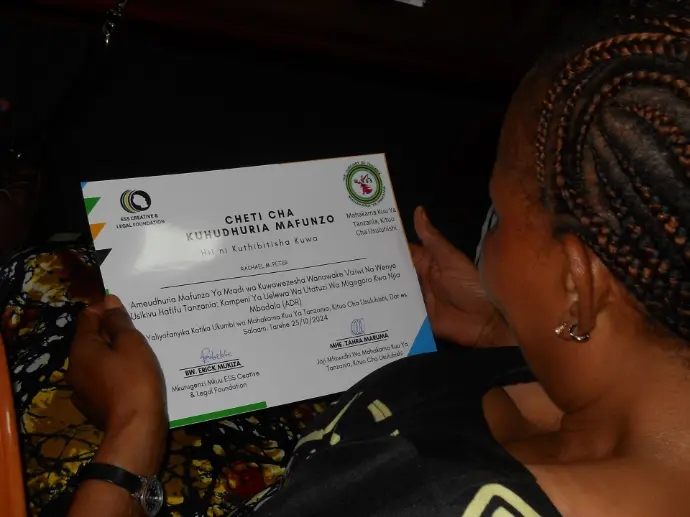
With 70%
reduction in legal costs compared to litigation.
Qualitative Impact:
- Mediation fosters a more accessible, efficient, and resilient legal and economic environment.
- Dramatic cost reduction increases access to legal recourse, paving the way for a more equitable legal system.
- Mediation program facilitates smoother legal processes, decrease backlogs, and ease the strain on the traditional legal system.
1 Month
is all it takes for mediation to resolve disputes, compared to a minimum of 12 months for court litigation.
Qualitative Impact:
- Faster resolution times increase public trust in the legal system.
- Reduced case backlogs, increased efficiency, and a more streamlined legal process benefit the legal system as a whole.
- Faster resolution times have direct economic implications, saving individuals and businesses money and contributing to overall community stability and productivity.
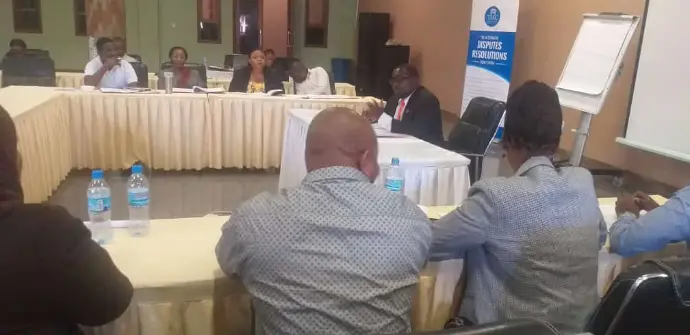
In just one day, we facilitated a peaceful resolution, fostering agreement and unity.
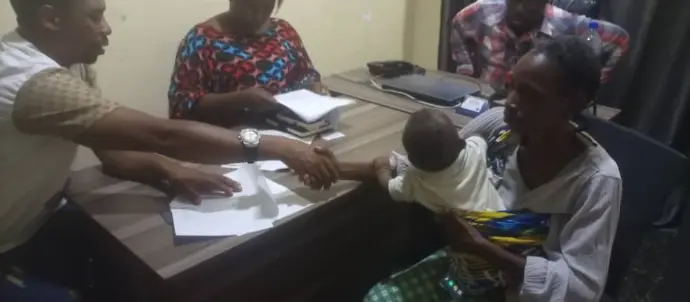
Swift resolution of a two-year VICOBA loan dispute. Mediation transformed tensions into collaboration, with parties signing a settlement deed in a day.
The impact assessment underscores the transformative power of mediation in fostering harmony, understanding, and a future built on peaceful resolutions. Our programs achieve statistical success and establish a lasting testament to the effectiveness of community-led conflict resolution initiatives. Together, we are making a tangible difference in promoting justice, inclusivity, and community well-being.
